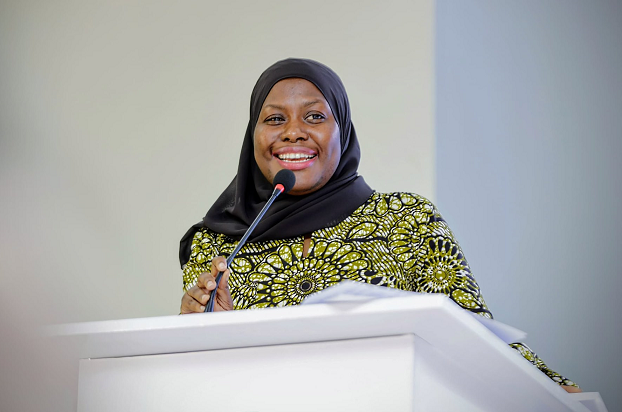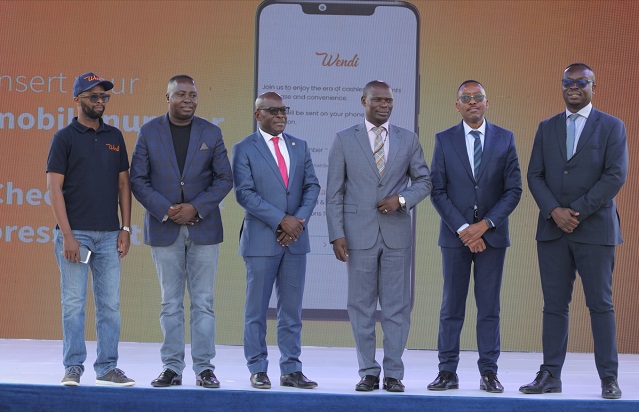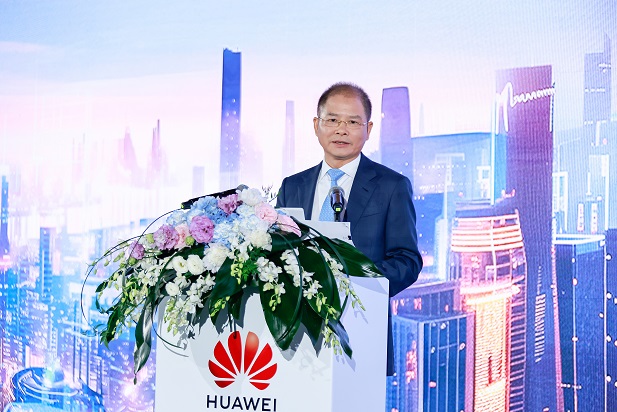Dr. Aminah Zawedde, the Permanent Secretary at the Ministry of ICT and National Guidance
The price of the internet has reduced from USD 205 for one GB in FY 2021/22 to USD 35 in FY 2023/24 , the Ministry of ICT and National Guidance has said.
Furthermore, the ministry says that internet penetration has increased from 25% in 2017 to 67% in FY 2023/34.
These are part of the achievements the ministry has recorded in implementing the 2021-2026 NRM Manifesto commitments.
While updating the country about the ministry’s achievements in the last four years at Office of the President Auditorium in Wednesday, Dr. Aminah Zawedde, the Permanent Secretary at the Ministry of ICT and National Guidance said that government has laid a total of 4,387 km of Optic Fiber Cable across 57/135 Districts of Uganda representing 42%. Additionally, 1,567 Government sites (MDAs and LGs) were connected to National Backbone Infrastructure (NBI).
In terms of infrastructure, Dr. Zawedde said that a National Data Centre and a Disaster Recovery Site have been established, fully equipped with state-of-the-art technology which is utilized for Centralized Hosting, Disaster Recovery, and other Data Centre Services for Government Applications & Data.
According to Dr. Zawedde, the data Centre currently hosts 306 applications for over 100 entities.
She adds that the Digital Terrestrial TV and radio signal coverage have improved from 56% and 80% in 2017 to 85% and 90% respectively by the end of June 2024, while the Government of China in conjunction with Star Times has installed Star Times satellite equipment in 900 villages across the country as part of the implementation of the Satellite TV equipment grant.
Dr. Zawedde says that the data sharing and integration platform (UGhub) has been rolled out to 146 entities (64 Public & 82 Private).
“This platform is ensuring seamless exchange of information between systems and reducing operating costs,” said Dr. Zawedde., adding: “The Unified Messaging and Collaboration System (UMCS) has been rolled out to 149 MDAs/DLGs. This is enhancing communication and collaboration in government.”
The Ministry further reveals that the roll out of the Digital Authentication and E-signatures platform (UGPass) is ongoing and continues to enable end to end delivery of e-government services.
The PS adds that an E-Post Digital platform has been developed and deployed at the General Post Office (GPO) and 48 Upcountry branches to support mail processing and allocation of e- addresses as well as physical addresses.
This is on top of a Customs Declaration System (CDS) that has been developed and deployed to expedite clearance of postal items by the Customs Department of Uganda Revenue Authority (URA).
An international Postal System (IPS) has been developed and deployed at 48 offices to ease reporting and tracking of international mails, added Dr. Zawedde.
On the side of digital literacy, Dr. Zawedde says that 6,270 farmers were skilled in 50 districts including; Bududa, Bulambuli, Manafwa, Mbale, Namisindwa, Sironko, Bushenyi, Ntungamo, Mitoma, Kiruhura, Ibanda, Isingiro, Kotido, Kibuku, Budaka, Butaleja, Amuru, Gulu, Kitgum, Lamwo, Nwoya, Pader among others.
5,225 participants were trained under the Community ICT program in various districts including; Agago, Amudat, Amuria, Bundibugyo, Kagadi, Kanungu, Karenga, Kotido, Lamwo, Moyo, Ngora, Ntoroko, Nwoya, Otuke, Pader, Buliisa, Butaleja, Buvuma, Kayunga, Kumi, Namisindwa, Kaliro, Kibuku, Namayingo, Alebtong, Kalangala, Sironko, Kaberamaido, and Butambala.
2,339 Women were trained in partnership with Women in Technology Uganda (WITU) & PENDA in various districts including; Dokolo, Otuke and Kitgum, Buvuma, Buyende, Kiryandongo Nakapiripiriti, Koboko, Maracha, Zombo, Nebbi, Mayuge, Kayunga, Kyenjojo and Kween districts.
Dr. Zawedde adds that 927 Elderly were trained in partnership with TAFU in Namisindwa, Sironko, Manafwa, Bududa, Bulambuli.
According to Dr. Zawedde, 4 Regional Resource centres were equipped with assistive technologies and equipment established in Arua, Gulu, Mbarara and Mbale in partnership with National Council for PWDs.
The PS says that the government is promoting ICT innovation to create jobs, promote import substitution, and to avoid over-dependence on foreign ICT products. As part of this, a National ICT Innovation Hub with capacity for over 500 innovators has been constructed in Nakawa.
“Innovation grants have been given to 132 Innovators and 6 private Innovation Hubs have been supported under the National ICT Initiatives Support Programme (NIISP). 11 ICT project innovations for use in various sectors have been developed and pre-incubated. These include the Smart animal tag, Solar powered silver fish drier, Smart car collision detection system, automated farm irrigation, Electronic walking stick for the blind/deaf, Solar powered crop sprayer, and the GSM based weather monitoring system,” says Dr. Zawedde.
She adds that the Ministry of ICT & NG has established various partnerships to promote the BPO industry in Uganda. UNDP supported the retooling of the National ICT Innovation Hub and establishment of ICT Business Incubation Hubs at Public Universities, while JICA is expected to support the implementation of an IT Industry Promotion Project geared towards strengthening the ICT ecosystem and creating jobs for Ugandan youth and seeking business opportunities for Ugandan companies in Japan. Dr. Zawedde says that Mastercard Foundation conducted a BPO diagnostic study and supported the development of the BPO strategy.
Dr. Zawedde, however, says that automation of government systems or processes is still slow.
To this, she says her ministry is Supporting Public and Private institutions to review and re-engineer their processes to facilitate automation and delivery of services online.
Inadequate ICT Uptake across the Country. Dr. Zawedde says that there is a planned review of tax regimes on the internet, ICT Equipment, and services with a view to reducing the taxes.
Dr. Zawedde decries the existence of many stand-alone systems in Government that don’t work in sync.
She says that the ministry towards the “Integration of existing systems by aligning them to complement each other by sharing functionalities i.e. making them customizable to address the specialized needs of individual entities as opposed to building new systems that duplicate each other.
In 2025, the ministry will concentrate on the:
-Implementation of last mile roll-out and connectivity of the broadband infrastructure.
-Connecting all essential service centers to the national backbone such as schools, hospitals, tourism sites, police, and Local Governments.
-Support the roll-out and integration of e-services such as the extension of e-education, e-health as well as remote collaboration solutions to digitally transform public service delivery.
-Development and commercialization of local ICT products and building a critical mass of talent to develop applications and services through the ICT innovation fund.





